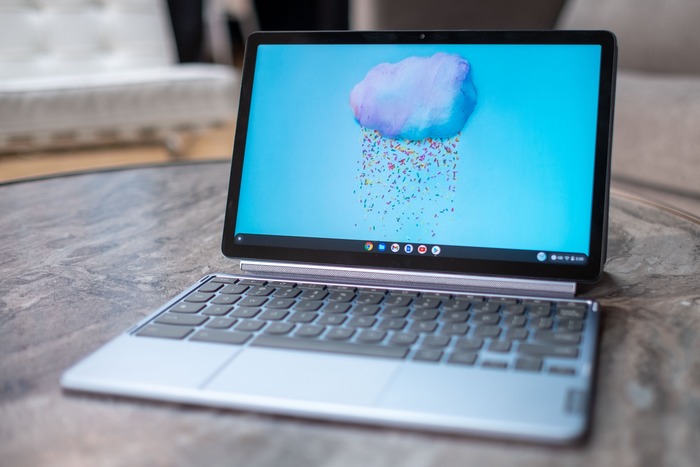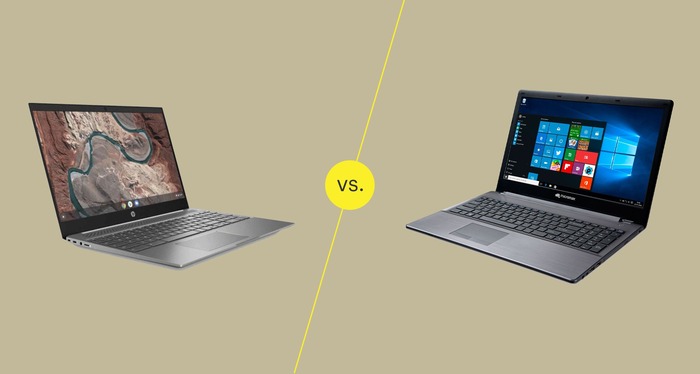Students rely on technology for their education, so having the right device is essential for keeping up with coursework.
Whether you’re taking notes, working on research projects, or attending virtual classes, having a reliable computer is a must. The big question many students face is whether to go for a traditional laptop or a Chromebook. Each option has its benefits, but the right choice comes down to your budget, study habits, and needs.
If you’re writing essays or handling assignments that require specific software, you might wonder if your device choice matters.
A expert essay writer may rely on advanced programs, while a student might need simple tools for typing and research. That’s where the Chromebook vs laptop debate begins—each device offers different features that cater to different types of students.
Understanding the Basics
Before comparing the pros and cons, it’s important to understand the basic difference between laptop and Chromebook.
A traditional laptop runs on Windows or macOS, offering full access to software like Microsoft Office, Adobe Creative Suite, and other desktop applications. Laptops are designed to handle everything from gaming to video editing, making them more versatile for students who need heavy-duty software.
In contrast, a Chromebook operates on ChromeOS, a lightweight system designed around the Chrome browser. Instead of installing software, most tasks are done online using web-based apps like Google Docs and Google Drive.
This makes Chromebooks simpler, faster, and often more affordable. But this also means limitations—without internet access, many of its features don’t work as smoothly.
Performance and Usability
When choosing between a Chromebook vs Windows for students, performance is a key factor. Windows laptops offer more power, better multitasking, and compatibility with various software. If you need to edit videos, code, or use industry-specific programs, a laptop is the better option.
However, this comes at a price—Windows laptops can be expensive, require more maintenance, and sometimes slow down over time.
Chromebooks, in contrast, boot up quickly, have great battery life, and are built for efficiency. They are excellent for students who primarily use Google services, stream lectures, and browse the web. However, if your studies involve heavy software use, a Chromebook might feel too limiting.
Price and Budget Considerations
One major advantage of Chromebooks is affordability. Compared to traditional laptops, they offer a lower-cost entry point. Many students on a tight budget find them appealing, as they provide all the basics without the high price tag.
To give you a clearer picture, here’s a comparison of average prices for both:
| Device Type | Price Range | Best For |
| Chromebook | $200 – $600 | Web browsing, Google apps, lightweight tasks |
| Windows Laptop | $500 – $2000+ | Advanced software, gaming, multitasking |
If you only need a device for online research, note-taking, and video calls, a Chromebook can save you money. But if you require specialized software, spending more on a laptop is worth it.

Software and Compatibility
Another factor to consider is software access. Many students ask, “Is Chromebook good for college?” It depends on the kind of work you need to do. If your coursework relies on Google Docs, Zoom, and basic web tools, then yes, a Chromebook is a great choice. But if you need to run Microsoft Office, Photoshop, or coding software, you may run into compatibility issues.
One common question is, “Is a Chromebook the same as a laptop?” Technically, yes—it’s a type of laptop, but the experience is very different. Traditional laptops give you full control over software installation, while Chromebooks rely on web-based applications.
Similarly, many students wonder, “What’s the difference between a Chromebook and a laptop?” The biggest difference is flexibility. A Windows laptop lets you install programs directly, while a Chromebook focuses on cloud computing. This means laptops offer more freedom, but Chromebooks are simpler and more secure.
Battery Life and Portability
Long battery life is crucial for students who spend hours on campus. Chromebooks tend to last much longer than Windows laptops, often providing 10–12 hours of use on a single charge.
Their lightweight operating system consumes less power, making them ideal for students who need a device that lasts all day without searching for an outlet. Windows laptops, depending on their hardware, usually last between 5–8 hours, though some premium models offer extended battery life.
Portability is another key factor. Chromebooks are generally smaller and lighter, with many models weighing around 2–3 pounds. Their compact size makes them easy to carry in a backpack. In contrast, Windows laptops can be bulkier, especially those with larger screens or high-performance components. If you need something ultra-portable, a Chromebook is the better option.
However, the trade-off comes down to performance. While Chromebooks excel in battery life and mobility, Windows laptops offer more power for demanding tasks. If you’re constantly on the move and need a lightweight device with great battery life, a Chromebook is a solid choice. But if your coursework requires more processing power, you may need to carry a charger and opt for a Windows laptop.
Final Thoughts
Choosing between a Chromebook vs laptop for students depends on your coursework, budget, and how you plan to use your device.
If you mostly use Google Docs, attend online classes, and need a lightweight, affordable option with great battery life, a Chromebook is a smart choice. However, if your studies require specialized software like Photoshop, coding tools, or Microsoft Office, a Windows laptop will serve you better in the long run.
Portability and simplicity make Chromebooks great for students on the go, but laptops offer more power and flexibility. If you need advanced features, a laptop is worth the investment.
But if you just need a reliable, budget-friendly option for everyday tasks, a Chromebook can get the job done. Consider your study needs and choose the device that fits your lifestyle best!
The post Chromebook vs Laptop for Students: Which One Should You Buy? appeared first on About Chromebooks.

